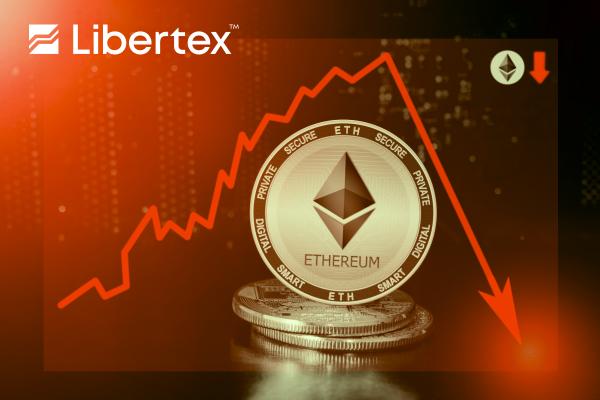After a short absence, cryptocurrencies have been in the spotlight once again. After gains of nearly 100% in the last 12 months for many of the top trending digital assets, it's hardly surprising. From the beginning of the long crypto winter in late 2021, Bitcoin lost over 70% of its value. It then regained all of these losses and then some between 2023 and Q1 2024. It currently sits at what might seem like a very healthy $57,274 (07/08).
However, all is not quite as well as it might first appear. Bitcoin has dropped 7.4% in just 5 days. And that's despite a full 13% rally since Monday! The damage has been even worse for smart contract currency Ethereum, which has lost a staggering 17.35% over the same period — again accounting for a double-digit rally beginning early this week. But what is the reason for this sudden decline, and why is Ethereum so much worse affected?
Political uncertainty abounds
The digital currencies market has always had a rather strained relationship with the political establishment. However, crypto has come a long way in terms of regulatory oversight and mainstream appeal in recent years. Indeed, a huge step for the asset class was the landmark approval of spot Bitcoin ETFs by the SEC this January. Yet, there are many who would like much more stringent regulation on both the mining and exchange of cryptocurrencies.
With the US presidential election fast approaching, many crypto investors have been keen to assess the stance of the Democratic ticket, Kamala Harris, and her VP nominee, Tim Walz. As Digital Commonwealth editor Darren Parkin wrote in a recent X post: "Tim Walz hasn't yet nailed his colours to the mast in terms of Bitcoin and crypto in general. However, he's a stickler for regulation. Make of that what you will." The crypto-friendly position of former President Trump and his VP candidate JD Vance are well known. US-based crypto exchange Gemini noted in its 2024 State of Crypto survey that 21% of Americans currently own cryptocurrency, and of these, 73% plan to consider a candidate's stance on cryptocurrencies when they vote for the next president.
The recent dip in crypto could then be viewed as a direct result of the rising popularity of Kamala Harris, whose polling numbers have vastly improved in the last couple of weeks. Should we get a strong statement outlining a favourable stance from the Democratic ticket, this could certainly reverse the rot.
Functionality over hype
The digital asset landscape has changed significantly since the pandemic. As blockchain technology reveals its host of real-life applications, from DeFi and NFTs to smart contracts and dApp technology, investors are increasingly interested in what a coin or token can do, and this has impacted values significantly. In fact, one of the reasons that Ethereum has fared so badly despite being one of the original cryptos is the ground it has lost in terms of functionality against newcomer coins like Solana and Cardano.
For instance, Ethereum has lost just under 30% since the start of August and has only managed to regain a paltry 3.5% from that local low. On the other hand, the faster and more easily exchangeable Cardano is only down 15% over the same period and recovered faster and more dynamically from its local low. And it's an even more impressive performance we've seen from Solana, another coin dubbed an "Ethereum killer". SOL is only down 11% on the week beginning 1 August, and with +10% over the last month, it's one of very few cryptocurrencies showing a net gain on the 30-day chart.
The reality nowadays is that altcoin investors are much more savvy and a self-styled smart contract coin that can only handle 15 transactions per second is just not going to cut it. The one thing that might save Ethereum is its greater decentralisation compared to competitors, provided that the move to a Proof-of-Work mechanism eventually yields huge speed gains as promised.
Trade crypto and more CFDs with Libertex
Libertex offers CFDs on asset classes ranging from forex, ETFs, and equities to commodities, options and, of course, crypto. In addition to legacy coins like BTC and ETH, Libertex also offers CFDs on newer altcoins such as SOL, AVAX, Cardano, and the Grayscale Bitcoin Trust. For more information or to create an account of your own, visit www.libertex.com/signup today.


